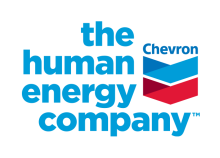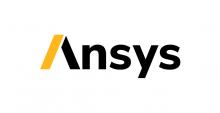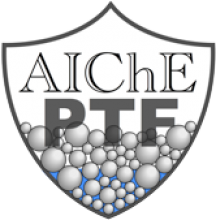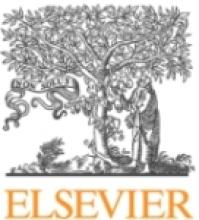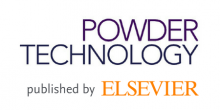Program Areas

The technical program of the 8th World Congress on Particle Technology will be divided into the following areas:
Particle & Bulk Powder Characterization
We cannot hope to understand what we cannot measure and if we cannot understand it we cannot progress. Particle properties can significantly influence the behavior of particle assembles, the quality of products and the efficiency of manufacturing processes. Particle characterization is therefore essential in many industrial processes and for the development of new innovative technologies. In this area our objective is to present state of the art research on particle and bulk powder characterization techniques and applications. Within this space measurements of individual particles, their interactions, and the bulk material behavior will be discussed.
Chairs:
Ben Freireich, Particulate Solid Research, Inc. (PSRI)
Alvaro Ramirez Gomez, Universidad Politécnica de Madrid
Sessions:
- Particle Morphology, Size, Density and Surface Texture Characterization
- Flow Properties of Particulate Solids
- Inter-Particle Contact and Force Characterization
- Micro-Macro Characterization, Relationships Modelling and Engineering Applications
- Characterization of Nanoparticles
- Rheological Characterization
- 3D Printing and Characterization of Particulate Materials
- Thermal and Electrical Properties of Particulate Solids

Particle Interactions
The key objective of this area is to use the microscopic design of particles and interfaces to adjust the macroscopic properties and structures of particulate systems and to tailor the processes and unit operations dealing with solid particles.
Based on the physico-chemical understanding of particle interactions and forces at the molecular and microscopic level, processes of particle attrition and agglomeration as well as electrification and charge control processes are examined across all hierarchical levels, whereby interface controlled process may play a major role in the understanding of the phenomena.
Chairs:
Stefan Heinrich, TU Hamburg
Shuji Matsusaka, University of Kyoto
Sessions:
- Interparticle Forces
- Cohesion & Adhesion
- Agglomeration
- Attrition
- Electrification and Charge Control
- Interface Controlled Processes

Particle Design
The area of particle design is expected to be a gathering place for the research of controllable synthesis, functionalization and applications of particles materials. Both the fundamental and applied studies on particles materials are welcome in this area.
Chairs:
Mark Jones, University of Newcastle
Yongsheng Han, Chinese Academy of Sciences
Sessions:
- Crystallization
- Simulation
- Processing
- Functionalization
- Applications

Handling & Processing of Granular Systems
Each and every year, most worldwide industries handle tremendous quantities of bulk solids. Reliable storage, handling & processing of these granular solids is of utmost importance to the underlying success of both the product and the company. Contributions are sought from existing and future scientists, engineers, practitioners and managers to discuss best current practices and future needs and research areas. This can include fundamental research through to industrial case studies, and everything in-between. As is shown by the broad range of sessions topics, the intent of this area is to include far reaching, stimulating and exciting discussions between those with a passion for handling & processing of granular systems.
Chairs:
David Craig, Jenike & Johanson
Shrikant Dhodapkar, The Dow Chemical Company
Sessions:
- Industrial and Engineering Applications in Granular Systems
- Modeling and Simulation of Bulk Solids and Granular Systems
- Design and Analysis of Hoppers, Silos, Chutes & Feeders - Theory and Practice
- Advances in Attrition, Erosion and Wear
- Pneumatic Conveying - Modeling and Applications
- Mechanical Conveying - Modeling and Applications
- Instrumentation, Control and Measurement Systems in Bulk Solids Systems in Processing Plants
- Segregation and Mixing - Modeling, Simulations and Applications
- Industrial Applications of Solids Processing
- Multi-Phase Granular Systems - Handling and Processing
- Recent Advances in Dust Control and Safety

Particle & Nanoparticle Functionalization
Contributions focusing on particles and nanoparticles or nanostructured particles for energy, environmental, biological/health/food, and separations applications such as fuel cells, solar cells, batteries, supercapacitors, chemical looping, water or air purification, food, biomedical, toxicity, absorption/adsorption, catalysis, etc. are sought as well as the characterization of such materials. Topics covered in this session include the development of novel particulate and nanoparticulate materials for energy and environmental applications, synthesis routes, material characterization, separation processing, and the processing of particles/nanostructured particles for integration into devices (e.g. part/device fabrication, formation of films, agglomerates, pastes or slurries) as well as the performance in the targeted applications. Applications using nano-coatings or other methods for functionalization to improve materials performance and used for additive manufacturing are particularly encouraged.
Chairs:
Al Weimer, University of Colorado, Boulder
Youngjune Park, GIST
Sessions:
- Particle and Nanoparticle Functionalization for Energy Applications
- Particle and Nanoparticle Functionalization for Environmental Applications
- Particle and Nanoparticle Functionalization for Biological/Health/Food Applications
- Particle and Nanoparticle Functionalization for Absorption and Adsorption/Separations
- Characterization of Functionalized Particles and NanoParticles
- Particle and Nanoparticle Functionalization for Catalysis

Particle Classification
Particle classification is of significant importance in industry. There have been long and lasting efforts to have a better design, optimized operation and scale-up of various relevant processes, however, our understanding is still far from complete, due to the involved very complex processes. This area is designed to report the latest advances in the studies on particle classification, including but not limited to cyclone & hydrocyclone, filtration, emerging cleaning techniques for particle separation with respect to environmental issues and particles sorting, all experimental, numerical and theoretical studies are invited in the area of particle classification.
Chairs:
Junwu Wang, Chinese Academy of Sciences
Benjamin Amblard, IFP Energies Nouvelles
Sessions:
- Cyclone & Hydrocyclone
- Filtration
- Emerging Cleaning Techniques for Particle Separation with Respect to Environmental Issues
- Particles Sorting

Fluidization & Multiphase Flow
Fluidization deals with complex fluid-particle contacts in multiphase flow, and continuing efforts and progresses have been made in improving the fundamental understanding of hydrodynamics, heat/mass transfer phenomena in fluidized beds, leading to advanced modeling, design and scale-up of existing and emerging novel fluidized bed and other related multiphase reactors. We welcome all papers on recent progress in hydrodynamics, transport phenomena, reactor modeling and scaleup of novel and unconventional multiphase reactors, as well as the development of novel diagnostic and measuring techniques.
Chairs:
Reddy Karri, PSRI
Tony Bi, University of British Columbia
Sessions:
- Fundamentals of Fluidization
- Heat Transfer, Mass Tranfer, Reactor Performance and Measurement Techniques in Fluidization and Multiphase Flow
- Computational and Numerical Approaches to Particle Flow and Industrial Applications
- Novel and Non-Conventional Reactors and Multiphase Flow Systems

Applications with Sustainable Energy & Environment
Particle technology is one of the fundamental bases for the development of energy and environment related technologies. Many energy conversion processes and environmental control systems involve the use or the production of particulate phases. A sustainable design of such technologies involves a better design of particles (e.g., catalysts, CO2 capture sorbents, chemical looping oxygen carriers) and understanding of reactions involving novel particulate systems. This area is designed to provide a platform for researchers and practitioners to discuss advancement and exchange ideas on how to address common challenges in applying particulate technologies in the sustainable energy and environment fields, such as energy conversion fundamentals and technologies, unconventional and renewable energy sources, carbon capture, utilization, and sequestration.
Chairs:
Eric Shen, ExxonMobil
Alissa Park, Columbia University
Sessions:
- Energy Conversion Process Fundamentals
- Innovating Energy Conversion Technologies
- Unconventional Energy Sources
- Carbon Capture, Utilization and Storage
- Renewable Energy, Bioenergy and Energy Storage

Particle-Based Separations: Fundamentals & Applications
This section covers three broad areas of particle-based separations. These are (i) fundamentals and applications of granular beds for solids separation from gases and liquids, (ii) fundamentals and applied aspects of adsorbent material development, applications, and corresponding separation processes, and (iii) fundamentals and applications of solids carriers that can perform separations or reactive separations via the "chemical looping" scheme.
Chairs:
Fanxing Li, North Carolina State University
Allan Issangya, PSRI
Sessions:
- Solid Carriers for Separation and Reactive Separation
- Adsorbents and Adsorbent Based Separation Processes
- Granular Bed Filters

Applications of Particle Technology for Pharmaceuticals
Particle technology concepts are commonly encountered and applied in the pharmaceutical industry during product development, process design and manufacturing of oral solid dose products. The application of such concepts has increased pharmaceutical product robustness by enabling a mechanistic-based approach. This technical track covers the application of particle technology during scale-up of pharmaceutical unit operations, development of continuous processes, materials engineering and characterization, and drug product design. Papers highlighting experimental and/or computational approaches applied in the pharmaceutical field are invited.
Chairs:
Brenda Remy, Bristol-Myers Squibb
Chi-Hwa Wang, National University of Singapore
Sessions:
- Innovations in Scale-up/Scale-Down of Pharmaceutical Unit Operations
- Particle Technology Applications to Pharmaceutical Continuous Processes
- Modeling of Pharmaceutical Unit Operations
- Advances in Particle Engineering for Pharmaceutical Applications
- Recent Developments in the Characterization of Pharmaceutical Materials
- Application of Particle Technology in Drug Design for Improving Patient Compliance
- Application of Real-Time Analytics in Pharmaceutical Processes
- Data Driven Approaches to Pharmaceutical Product and Process Design

Applications of Solids Processing Unit Operations
This area is focused on the application of basic knowledge in solid processing and unit operations. In order to design a unit operation or a solid processing, the basic physics of how particles behave and flow in a changing environment or how the particles state and properties are changing during the process and how one should characterize them, has to be known. Unlike fluids or gases, the state of particulate materials is not sufficient to define their properties. Therefore, the designer has to be aware of the processing path and steps or the particle “history” in order to develop a unit operation to fit into the production line. This area is concentrated on the engineering chain of development from basic research to final application where the linkage to previous or post parts of the chain are clear. Additional challenge to this area would be examination of a series of units keeping in mind that an optimum manufacturing line is not necessarily assembled from optimum single units.
Chairs:
Haim Kalman, Ben Gurion University
Bruce Hook, The Dow Chemical Company
Potential Sessions & Topics:
- Particles in Contact: the Key Challenge in Solids Processing
- Dryers & Heating
- Particle Coatings
- Particle Size/Shape Control
- Mixing, Blending, and Segregation
- Pneumatic Conveying
- Dynamic Solids Flows Sheeting
- Particle-Fluid Reactions
- Gas-Phase Polyolefin Reactors (i.e., Polyethylene & Polypropylene)
- Chlorination Reactors (i.e., TiO2, Oxychlorination, Catoxide)
- Process Development for Novel Particulates
- Safety (i.e., Dust Explosions, Exposure Limits)

Special Topics in Particle Technology
World Congress on Particle Technology is intended to invite and encourage advanced research in the area of Particle Technology. The Special Topics area is intended for this very purpose. Over the last several decades, Particle Technology has transformed from an Art into Science and with the rapid development of instrumentation and computational power, there has been tremendous innovation in both experimental and modeling techniques for particulate systems. This has also enabled the development of a variety of novel low carbon processes which have particle technology at their core. The Special Topics area is a great platform for sharing these innovations.
We invite papers related to:
- Application of Particle Technology in Sustainable Processes such as biofuels and biomass conversion
- Advanced experimental techniques in all aspects of particulate systems
- Advanced modeling techniques for particulate systems – both Discrete as well as continuum approaches
- Industrial applications of experimental and computational particle flows
Chairs:
Madhusudhan Kodam, The Dow Chemical Company
Paola Lettieri, University College London

Education
Particle technology plays a critical role in various industries, including chemical, petrochemical, petroleum, pharmaceutical, metallurgy, alternative energy, agriculture, food, advanced material, environmental, etc. As part of the mission of AIChE World Congress on Particle Technology, we will serve the particle technology community by introducing the field to students, young and experienced engineers and scientists, and professors, and by raising awareness about its importance and relevance to the modern Chemical Process Industry.
We will be bringing the world of particle technology into the lives of current and future engineers and scientists through fun-filled, awe-inspiring and educational sessions that will include keynote presentation, tutorials, student workshop, experiments and live hands-on demonstrations, computational modeling, workshop on problem solving, poster sessions on courses, webinars, classes and degree programs, industrial courses, troubleshooting, videos and new online learning enhancement tools in instruction, and much more. Highlights from the Education Session will be published in a special issue of a prestigious international journal.
Chairs:
Mayank Kashyap, SABIC
George Klinzing, University of Pittsburgh
Sessions:
- Student Workshop on Particle Technology
- Experiments and Demonstrations in Particle Technology
- Computational Modeling for Undergraduates
- Poster Sessions on Course, Webinars, Classes, Degree Programs
- Keynote Presenter
- New Tools in Instruction
- Troubleshooting in Particle Technology
- Workshop on Problem Solving in Particle Technology
- Nature-Inspired Chemical Engineering Applied to Particle Technology

Combustible Dust Safety
In the last 15 years, NA solids handling plants have faced a numerous devastating secondary explosions with several fatalities and with communities being ruined as a result. It all boils down to the awareness and training in the area of combustible dusts which is still lacking. Combustible solids handling is not a new concept nor is an art, but it is a science driven by the data of combustible parameters such as particle size and shape, minimum ignition energy and deflagration index of the sample and more . However, testing and generating data of the relevant combustible parameters per standards and codes and applying to the existing plant and providing a guidance for the reliable and long ownership of these plants is but a challenge. It is essential to understand all factors that affect fires and deflagrations. It is essential to identify proper and reliable solutions for either containing or mitigating or controlling hazards caused by dusts. We have standards and codes in NA such as NFPA and rule of a law is still a long way away per OSHA, but EU have a rule of law called ATEX.
Chairs:
Konanur Manjunath, The Dow Chemical Company
Sessions:
- Combustibility Data Generation and Interpretation
- Fundamentals of Dust Explosion/Deflagration
- Ignition Source Identification including Static Charging of Particles
- Isolation and Suppression of Dust Deflagration
- Housekeeping and Guidelines
- Standards and Codes Development
- Hybrid Mixtures
- Dust Explosion Case Studies


